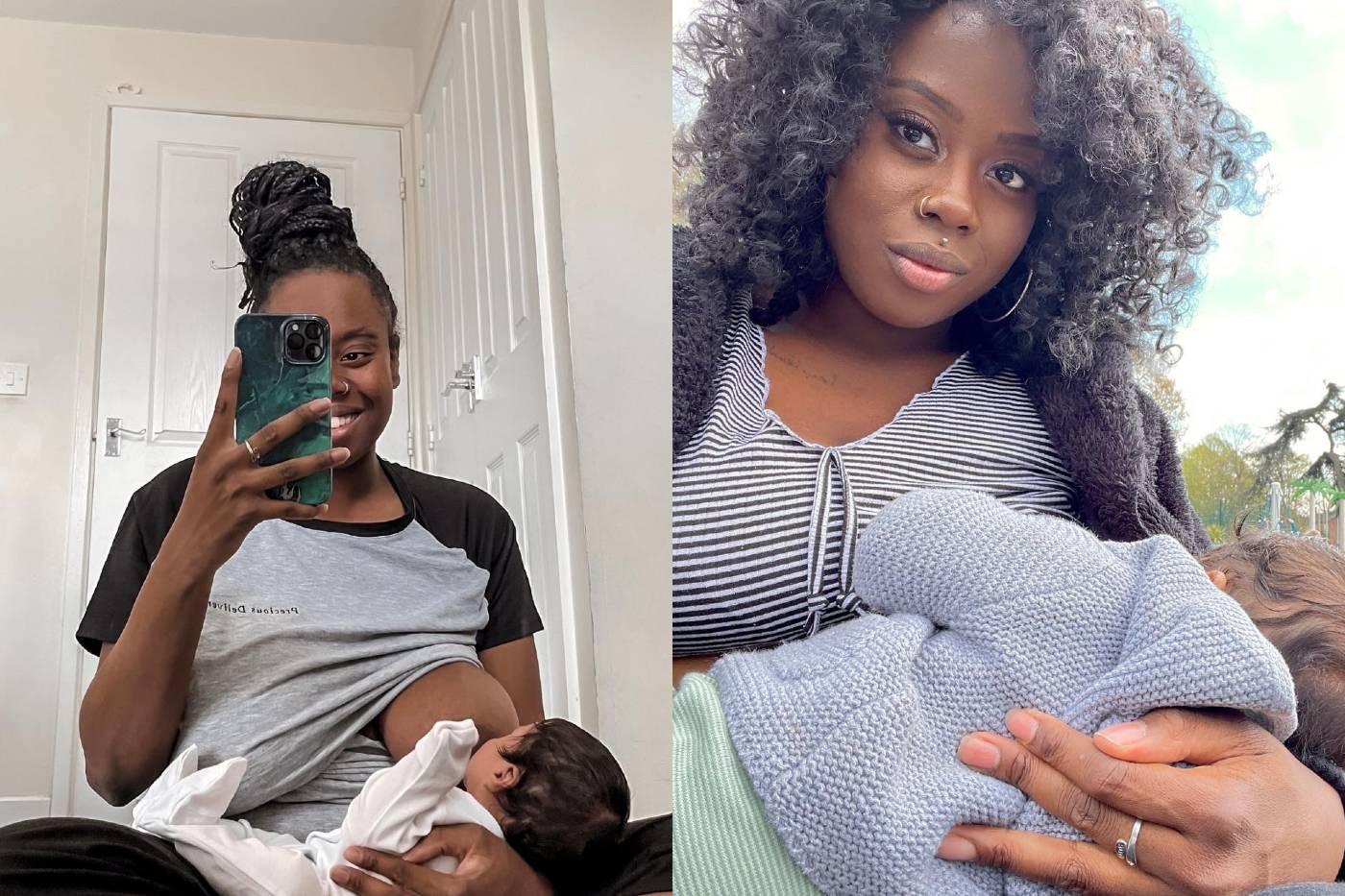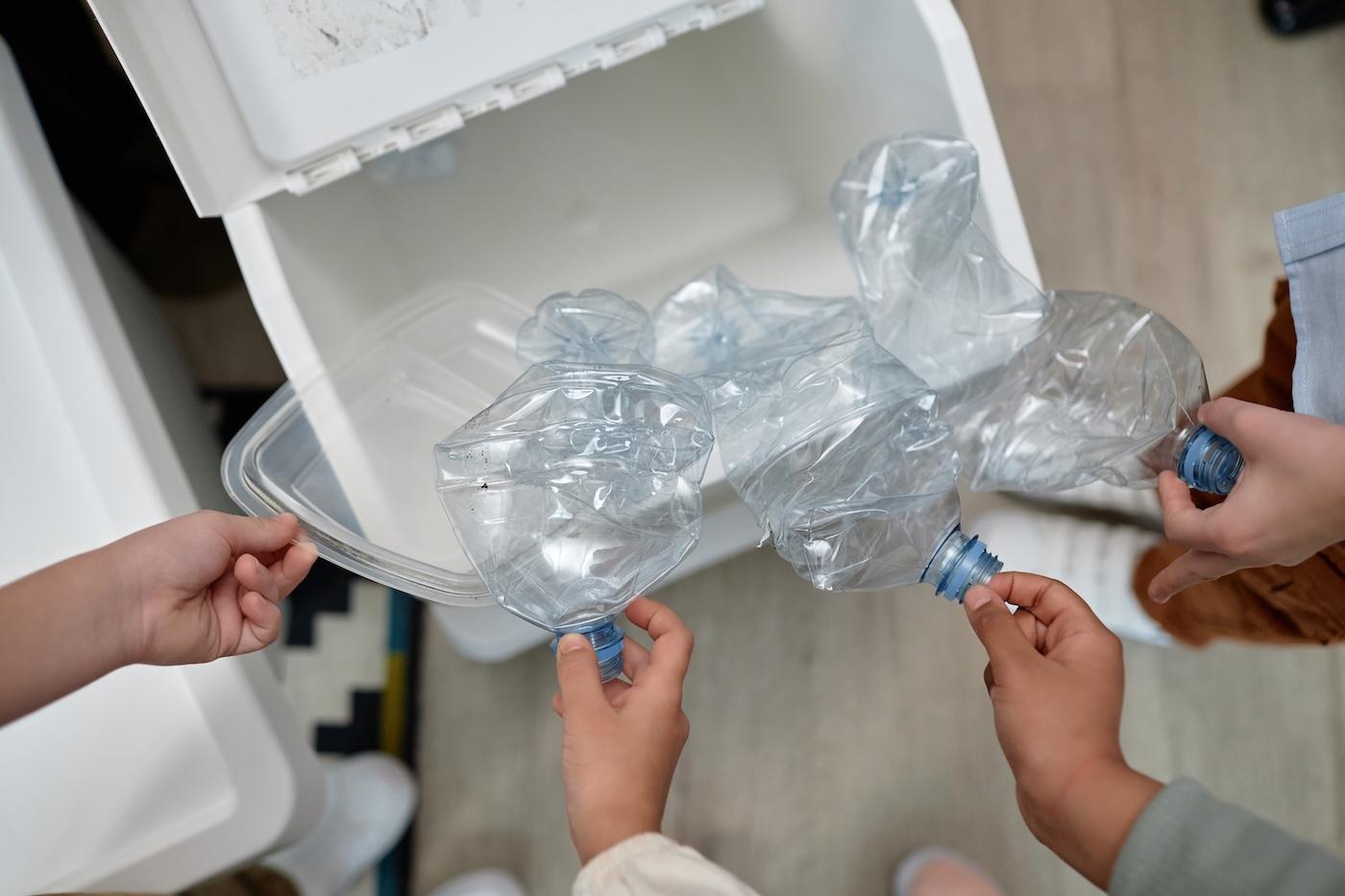PARENTS
Backlash Didn’t Discourage this Black Breastfeeding Mama!
Despite facing shaming and name-calling, Chevi Nadene Osborne considers her breastfeeding journey a success.

Written by
Happiest Baby Staff

Chevi Nadene Osbourne is the proud mum of Kingsley, who’s 18 months old and Kairo, 4. When reflecting on all the milestones, victories, and everyday joys of motherhood, one of Chevi’s very favorite parts of it all has been breastfeeding her boys. She nursed them in babyhood, then in toddlerhood, and today she continues to breastfeed both. This means in total, she’s been nursing her children for four years. “Saying that out loud is mind boggling!” laughs the UK mom.
What makes Chevi’s achievement especially “mind-boggling”—and triumphant—is that she’s gotten this far in her breastfeeding journey, despite pushback, stigma, and other breastfeeding barriers she’s encountered along the way as a Black breastfeeding mama.
Chevi’s experience speaks to the importance of Black Breastfeeding Week, a 10-year-old movement to address racial disparities and stigma in breastfeeding. So, in honor of this special week, Happiest Baby asked Chevi and other Black mothers to share more about their breastfeeding journeys. Here is Chevi’s story.
Happiest Baby: You’ve noted that breastfeeding is one of your favorite things about being a mum. Why is that?Chevi Nadene Osbourne: I always knew I wanted to breastfeed. I knew from the minute I found out I was pregnant! Breastfeeding allows me to be close to my children. I feel that it strengthens our bond, and ultimately, I’m giving them something nobody else ever can and that makes me smile.
HB: You’re not shy about posting breastfeeding and pumping photos on your Instagram feed. Do you think it’s especially important for Black moms to do this to normalize breastfeeding and end stigma? CNO: I think it’s incredibly important! I want to be a voice for Black mothers worldwide to encourage breastfeeding and how natural it is. I never hesitated to post these types of photos. I wanted to get the word out. I wanted to be that [encouraging] voice to someone...something I never had.
HB: You’re not only breastfeeding, but extended and tandem feeding…so you’re doing it all! Have you noticed that the reaction to your breastfeeding has shifted as your children have gotten older? CNO: Yes! When I breastfed Kairo as a newborn, everyone loved it. They couldn’t get enough of the “cuteness” and the same was true for when I nursed Kingsley as an infant. But as soon as Kairo reached 6 months old, people had a lot to say about it and didn’t agree. I’d get, “Are you still breastfeeding Kairo” ALL the time! You should’ve seen the facial expressions I got when I was feeding Kairo as a young toddler. I get the looks. I get the questions. I get the judgment. Nothing hurts more than being judged by strangers—even family and friends—about how I choose to feed and nourish my children. [It got worse] when I continued to breastfeed them together. That’s when I received messages saying I’m disgusting. You name it, I’ve received it! I’ve even had family members tell me to cover up and stop breastfeeding altogether. [Learn more about extended breastfeeding.]
HB: Why are you so passionate about ending Black breastfeeding stigmaCNO: I have received comments and direct messages saying I am weird, that I’m fetishizing my children continuing to breastfeed at this age. Being completely transparent here…it broke my heart. I took a break from social media after that, but later returned and made a huge post about not letting trolls get to me anymore. No woman should ever feel uncomfortable when feeding their child. No woman should have to cover up in fear of being judged or glared at by others. Breastfeeding is normal, it’s a natural part of life. We need to end the stigma!
HB: Can you share a bit about the positive feedback you receive from posting breastfeeding photos? CNO: The positives have been amazing! It’s a great feeling. All the positive messages certainly help to counter the negative feedback. I love that I can be the help that I needed when I was starting out breastfeeding yet had nobody to talk to. I have had people reach out to me saying that I’ve inspired them to breastfeed their children. I’ve even had messages from mums asking me if I can help their babies latch etc. It’s been lovely.
HB: How much breastfeeding help or encouragement did you receive in the hospital after your babies’ births? CNO: None. When I gave birth to Kairo, not one nurse or practitioner helped me to get Kairo to latch. I had to ask YouTube for help instead. It was dreadful! I definitely feel this is especially an issue with the Black breastfeeding mothers. I think the reason that there aren’t more Black people breastfeeding is that they don’t get help. And when we ask, we get ignored.
Even later on when I had mastitis, nobody blinked an eye! [Mastitis is the inflammation of breast tissue that can lead to infection, marked by fever, breast pain, swelling, and redness.] It was horrific, such a horrible time for me. But my doctor dismissed my concerns. And I think my skin color played a huge factor. [The red rash associated with mastitis isn’t always evident on dark skin, leading to misdiagnosis from physicians who are less familiar with dark skin.]
HB: What’s your best piece of advice you have for Black moms-to-be hoping to breastfeed?CNO: If you need help DEMAND IT! Keep going at them until your voice is heard!
HB: Why do you think Black Breastfeeding Week is important?CNO: There are not enough Black women breastfeeding—or getting support. That needs to change.
More Black mamas share their breastfeeding stories:
- The Founder of Birth Queen Shares Her Nursing Journey
- “My Nurse Told Me to Stop Breastfeeding!”
- One Mom Shared The Beauty—and Hard Work—of Breastfeeding
- Breastfeeding Takes a Midwife, Doula, Lactation Consultant
Disclaimer: The information on our site is NOT medical advice for any specific person or condition. It is only meant as general information. If you have any medical questions and concerns about your child or yourself, please contact your health provider.
SHARE THIS ARTICLE
MOST LOVED
Sleepytime Sidekicks












